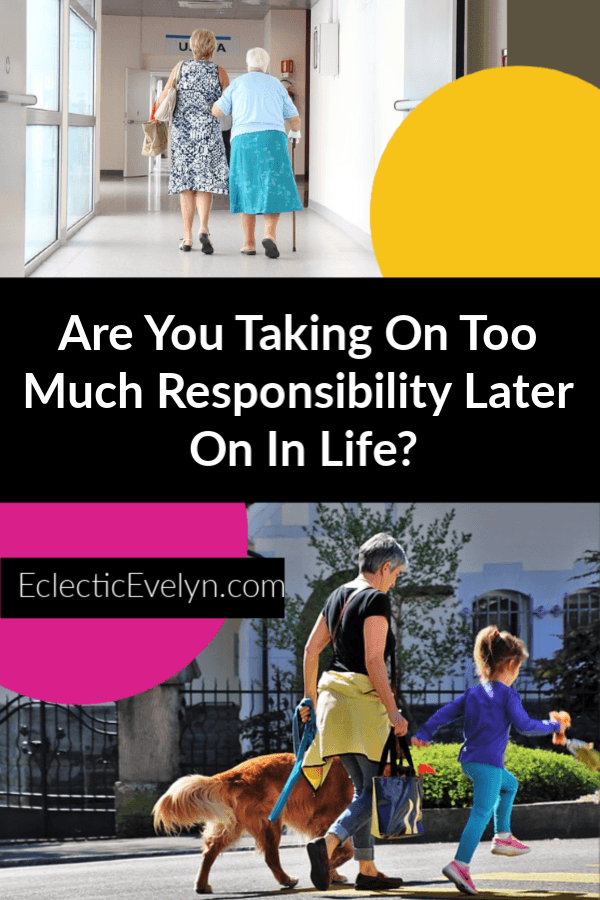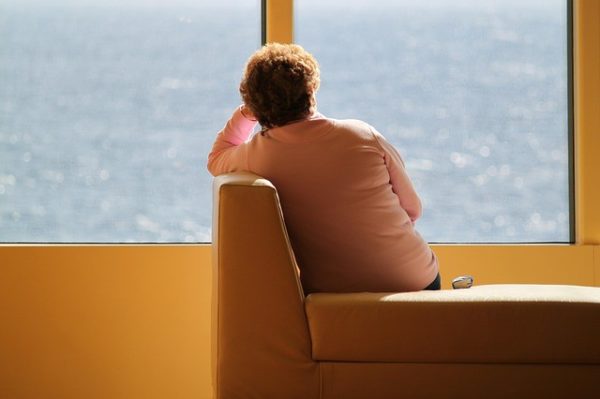Our later years should be a time for relaxing and giving up responsibility. However, in many cases, this doesn’t happen and people can simply end up taking on more responsibility as they get older. The stress of this responsibility can have a negative impact on our mental and physical health – in fact, it could be sending you to an early grave. Learning to give up responsibility when needed is important for you and the people around you. Here are just some ways in which people burden themselves later on in life.

Taking on too much work
The retirement age is constantly going up. In fact, many people are working long past their retirement age – the number of people retiring after 70 has doubled since 2010.
Some people don’t want to give up work as it gives them a sense of purpose. In other cases, it could be the only way to financially survive. Whilst both can be valid reasons to work past retirement, the danger is that many people take on too much when they’re no longer as physically fit or as mentally sharp.
Consider whether your work is making you feel run down. Do you feel that you have no energy left at the end of each day. Have you noticed aches and pains being made worse by the type of work you’re doing? If so, it’s likely that you’re taking on too much.
If it’s a case of wanting to still work to give you a sense of purpose, consider part-time voluntary work. Part-time paid work may interfere with your pension and affect the amount of money you’re getting in, whilst voluntary work will still allow you to receive your whole pension whilst giving you the reward of working. You also have control over what hours you want to work.
If it’s a case of needing to cover your living costs, there are many healthier options than working all hours. You could consider downsizing your home – this could cut the cost of bills. Meanwhile, if you own property and have paid off your mortgage, downsizing to a cheaper property could allow you to earn a large sum of money to put towards your retirement. As for those that don’t want to move and own property, an equity release may be possible, allowing you to access the added value that your home has gained since living there. Selling unwanted possessions may also allow you some extra money to live off of.

Becoming a full-time carer for loved ones
Many older people end up becoming full-time carers for loved ones later on in life. This could be a parent or it could be a partner. This can be an emotional, a physical and a financial strain.
When looking after their health, you need to be careful of damaging your own health. 70% of caregivers over the age of 70 die before the people they’re caring for – this is all down to the stress of being a caregiver. Many people are reluctant to share the load, but by not letting others take some of the strain you could be cutting your life short, and then other people will have to step in when you are gone.
Hiring professional care could give you the break you need. This may only need to be part-time care – many people hire carers to look after their loved one in the morning and before bed as these times of the day can often require the most physical work and stress. This will still allow you to spend the bulk of the day with them.
Obviously, if it’s a physical disability that your loved one has, they should have a choice in this. In most cases, the idea of a stranger having to get them dressed and undressed can be daunting, but most will be more willing to take on this care if it means giving their carer a break.
There’s also the option of nursing homes. Many people hate the idea of giving up full responsibility and see it as giving up their duty, however you shouldn’t feel ashamed about it. The fees can sometimes be the biggest issue – you may, however, be able to afford a week here and there as a form of respite. This could allow you to still manage their care and spend most of your time with them, whilst getting the breaks you need for your own health.

Doing too much for your children
If you’ve had children later in life, they may still not be independent enough to look after themselves. However, if your kids are all grown up and are still dependent on you, it may be time to draw the line.
There are lots of ways in which kids can become too dependent during adulthood. It could be that they’re still living with you and not contributing a fair share to the bills. It could be that they’ve moved out but are still constantly asking you for money in order to get out of their financial problems. It could even be that they have kids, but rely too much on you to look after the kids.
Some people enjoy still having this responsibility for their kids, but if it’s starting to wear you down and you feel you deserve more freedom, you need to put your foot down and start letting them take care of their own problems. Obviously, there are times when they may be in genuine need of help, in which case you should step in, however, this shouldn’t mean paying off all their debts or being more of a parent than a grandparent to their kids.

It’s up to you to decide what you want the rest of your life to look like. Do you want to live in a multi-generational home and care for your grandchildren or do you want to retire to the shore and paint? Do you want to start your own business, return to school, or spend your days reading by the lake? It’s your life and only you can make the decision, You must decide what is too much and what you want to eliminate.
How do you set limits in your own life?







Thanks Evelyn for the post and posing the question: are you taking on too much responsibility later on in life? I’m pinning it and pondering some of the points you made. Visiting you at Pretty Pintastic Party #262 (thanks for hosting), where I posted “Recipes for Remarkable Vegan Meatballs” (a vegan meatball roundup). Have a great weekend and be well.
Great post, hubby and I are downsizing from a McMansion and I can’t wait!!